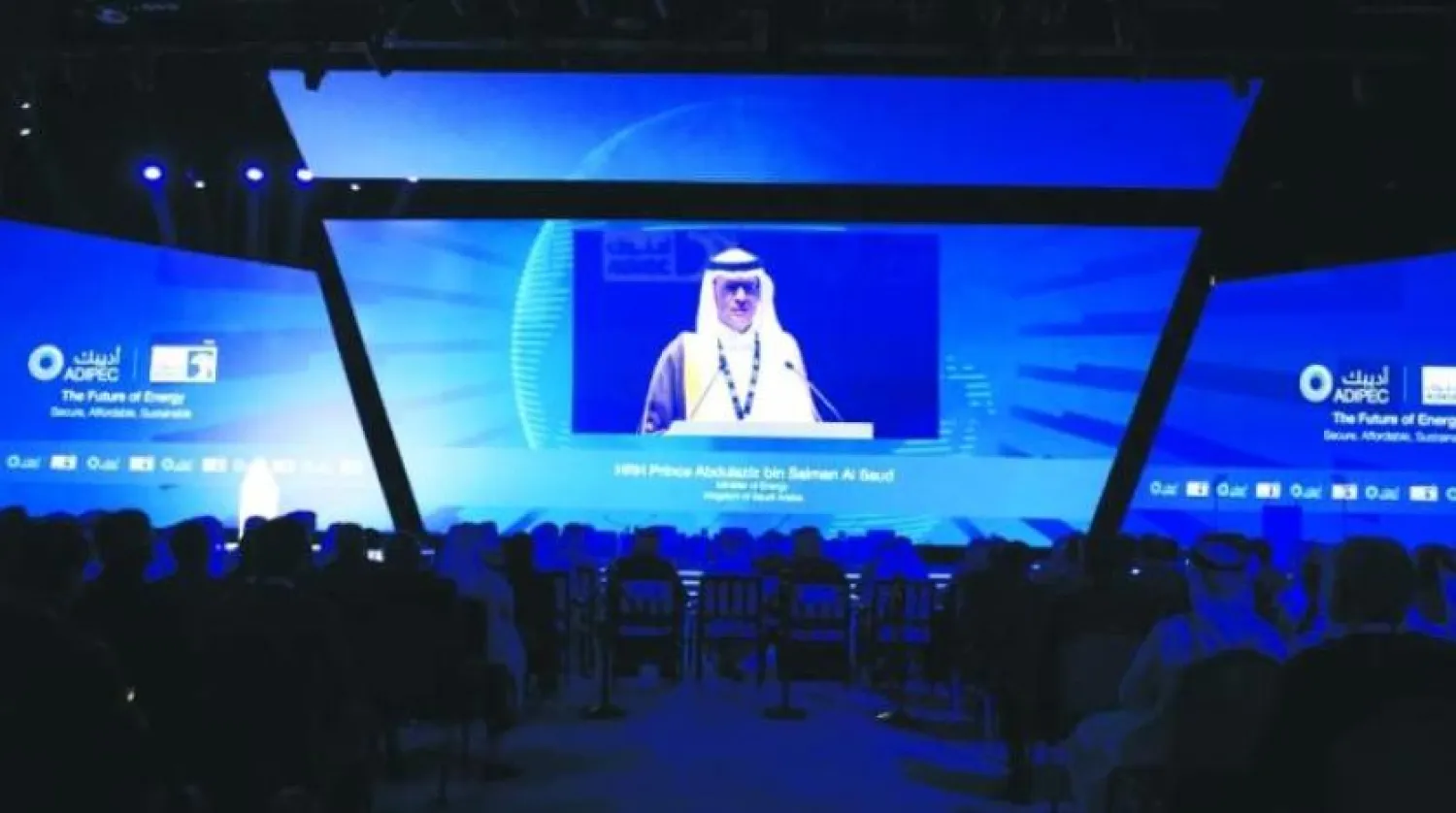Saudi Energy Minister Prince Abdulaziz bin Salman stressed that Saudi Arabia and the UAE were working to increase production capacity, enhance refining volume, and convert oil into petrochemicals.
He noted that the two countries were seeking to provide a safe and sustainable energy system.
In his speech on the sidelines of the Abu Dhabi International Petroleum Exhibition and Conference (ADIPEC) on Monday, the Saudi minister said: “We and the UAE - one of the largest oil producers in the world… will cooperate to set the rules for the future energy mix.”
Prince Abdulaziz bin Salman described Saudi Arabia and the UAE as “twins” in the measures taken to address energy production and climate change.
“If we look at the conferences that we host in Saudi Arabia and the UAE, the message we send is that we are present, proactive, and we will be vigilant. None of the limited calls will deter us from focusing on our future; because if we lose focus on the future, we will repeat what is happening today,” he remarked.
Suhail Al Mazrouei, UAE Minister of Energy, said that OPEC+ was keen to provide the world with the oil supplies it needs, stressing that the alliance that includes major producers would always be in a position to achieve balance in the markets.
He added that OPEC+ was always willing to balance crude oil markets if required and if consumers require help, the alliance was “only a phone call away”.
For his part, US Energy Envoy Amos Hochstein noted that energy must be priced in a way that allows economic growth, adding that the oil and gas sector needed more investment.
He also told the conference that the relationship between the United States and the UAE is “strong, long-standing and enduring.”
Dr. Sultan Al Jaber, Minister of Industry and Advanced Technology, Managing Director and CEO of the Abu Dhabi National Oil Company (ADNOC), stressed that the world needed more energy with less emissions to ensure the security and sustainability of supplies.
He explained that ADIPEC was being held amid complex conditions facing the world.
“Here are the hard facts: Global supply chains continue to be fragile. Geopolitics are now more complex, fragmented and polarized than ever,” he said.
“As a result, the global economy is in a critical situation,” he warned.
Al Jaber continued: “If we zero out hydrocarbon investment due to natural decline, we would lose five million barrels per day of oil each year from current supplies. This would make the shocks we have experienced this year feel like a minor tremor. If this year has taught us anything, it taught us that energy security is the foundation of all progress – economic, social and climate progress.”
The CEO of ADNOC emphasized that the world needed all available solutions to secure its energy needs.
“It is not oil and gas, or solar, not wind or nuclear, or hydrogen. It is oil and gas and solar, and wind and nuclear, and hydrogen. It is all of the above, plus the clean energies yet to be discovered, commercialized and deployed. The world needs maximum energy, minimum emissions,” he underlined.
The Abu Dhabi International Petroleum Exhibition and Conference (ADIPEC 2022) kicked off on Monday in the UAE capital under the patronage of Sheikh Mohamed bin Zayed Al Nahyan, President of the Emirates.
Sheikh Mansour bin Zayed Al Nahyan, Deputy Prime Minister and Minister of the Presidential Court, inaugurated the 38th edition of ADIPEC, with a wide participation of regional and international stakeholders.









